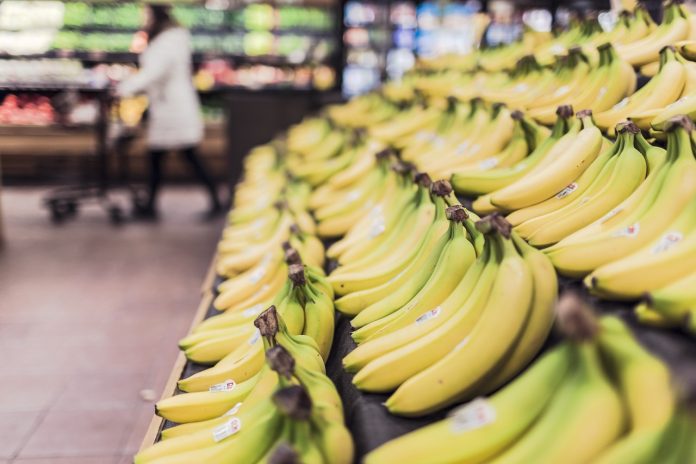Guest Post by
Editor’s Note: Recently Democratic presidential nominee Vice-President Kamala Harris has been making speeches blaming corporate greed for rising food prices, part of a broader inflation trend under the Biden-Harris administration straining average American’s budgets. This is false. The article below notes that higher food prices are in large part being driven by the Biden-Harris administration’s climate and energy policies, policies Harris cast the deciding vote for, still endorses, and has pledged to expand. For instance, the Democratic party’s platform calls for enforcing net-zero carbon dioxide policies on the agricultural sector by 2050.
The Heartland Institute has previously demonstrated how the Biden-Harris climate and energy policies raised energy costs, which contributes to higher food costs. Climate Realism has documented how climate policies, like those embraced by the Biden-Harris administration and endorsed in the Paris Climate Agreement, have led to rising food prices, food shortages, and protests in a number of posts, here, here, and here, for example. The investigative report below shows that what’s true of the nation and the globe as a whole, is equally true in North Carolina. President Joe Biden’s and Vice-President Kamala Harris’ Climate policies, such as restrictions on fossil fuels and the fertilizers and pesticides made from them, are behind the sharp rise in food prices since 2021, not corporate greed or price fixing.
(The Center Square) – Rising grocery store prices over the last few years aren’t the fault of farmers or “greedy” corporations, a conservative North Carolina research organization concludes in a new documentary series and report.
Instead, higher energy prices and more regulations are the culprit, according to the John Locke Foundation documentary series Sowing Resilience.
It recommends a list of changes including streamlining the zoning and permitting process, and building coalitions to fight overly restrictive federal and state mandates.
The series examines policy decisions on agriculture that were made during the COVID-19 pandemic.
“Experiences during the COVID-19 pandemic and the policy reactions to it exposed supply-chain and other vulnerabilities that still require solutions,” states a foundation’s report that accompanies the series. “The pandemic also worsened the growing food insecurity problem in North Carolina. Over 10% of North Carolinians struggle to secure enough food for a healthy lifestyle, according to the USDA. Only about 6% of adults in the state report consuming at least two servings of vegetables or fruits per day. Meanwhile, over one-third are obese, according to the Body Mass Indexes.”
At the same time, grocery prices skyrocketed 25% from 2019-2023, the Foundation said. The last three years are in the Biden administration, which pushes Vice President Kamala Harris and her first price gouging federal law on food suppliers and grocers.
“Climate policies such as carbon pricing add significant expenses to farmers’ operating budgets, translating to an annual increase in a family of four’s grocery bills by $1,330,” the Locke Foundation said. “Environmental, social, and governance (ESG) reporting requirements and emissions monitoring increase participating farms’ annual operating expenses by an estimated 34%, beyond the reach of many smaller farms despite their need for market access.”
The report challenges the assertion that higher food prices are the result of corporate greed.
“There is competition across the many segments of the food industry,” the foundation states. “Widespread and coordinated price gouging is unlikely.”
It cites higher fuel costs as a key reason for rising prices at the grocery stores.
Overly restrictive zoning and permitting requirements have also hampered food production in North Carolina, the foundation report concludes.
“One of the most substantial challenges with zoning regulations is their complexity and cost of compliance,” the reports says. “Farmers often face a maze of rules and regulations that require time, money, and expertise to navigate – diverting resources away from essential farming activities and placing an undue strain on farmers, particularly smaller operations with limited staff and financial resources.”
Originally posted by The Center Square. Reposted with permission.


















Harris is oblivious to humanity’s addiction to oil as she is to these two basic facts:
1. No one uses crude oil in its raw form. “Big Oil” only exists because of humanity’s addiction to the products and fuels made from oil!
2. “Renewables” only exist to generate occasional electricity, as they CANNOT make any products or fuels!
To rid the world of crude oil usage, there is no need to over-regulate or over-tax the oil industry, just STOP using the products and fuels made from crude oil! Simplistically:
• STOP making cars, trucks, aircraft, boats, ships, farming equipment, medical equipment and supplies, communications equipment, military equipment, etc. that demand crude oil for their supply chain of products.
STOPPING the demands of society, for the products and fuels made from oil, will eliminate the need for crude oil !!!!!
Harris wants to return to the hunter- gatherers type of society with the reduction of fossil fuel generated equipment and its reliance on efficient energy sources that lower costs! This whole carbon dioxide emissions is rooted in having fewer people not in making food more available. Obviously restricting usage of fossils fuels which agricultural production uses quite heavily would setback production and create shortages due to lack of yields being as high from the scarcity of resources required to maintain their getting to market in time! She has totally caved to the green revolution without considering the impact her stupid policies have on agriculture and food supply! We need all types of energy working together to create a vibrant and abundant supply of food at a favorable price and not just enforce rules to meet some arbitrary requirements set. By radical measures!